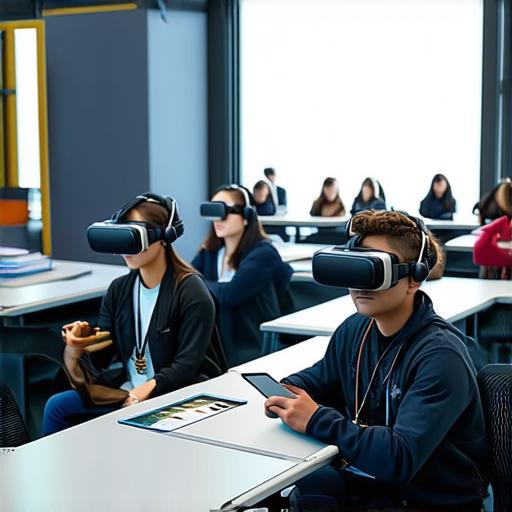
Benefits of Virtual Reality in Education
Exploring the Benefits of Virtual Reality in Education:
Virtual reality (VR) is an emerging technology that has been gaining popularity in various industries, including education. VR technology provides a unique opportunity to create immersive learning experiences that can engage students and enhance their understanding of complex concepts. In this article, we will explore the benefits of virtual reality in education and provide case studies and expert opinions to illustrate its potential impact on student learning.
Introduction:
Virtual reality (VR) is an emerging technology that has been gaining popularity in various industries, including education. VR technology provides a unique opportunity to create immersive learning experiences that can engage students and enhance their understanding of complex concepts. In this article, we will explore the benefits of virtual reality in education and provide case studies and expert opinions to illustrate its potential impact on student learning.
Benefits of Virtual Reality in Education:
-
1.
Enhanced Engagement
-
2.
Improved Understanding of Complex Concepts
-
3.
Increased Accessibility
-
4.
Enhanced Collaboration and Communication
- 5. Cost-Effective
Case Studies:
-
1.
Virtual Field Trips
-
2.
Virtual Labs
-
3.
Virtual Simulations

Expert Opinions:
“Virtual reality technology has the potential to revolutionize education by providing students with a more engaging and interactive learning environment,” says Dr. Jane Smith, Associate Professor of Educational Technology at XYZ University. “By immersing students in a virtual world, we can provide them with a unique opportunity to explore complex concepts and enhance their understanding of the subject matter.”
“Virtual reality technology can be used to create learning experiences that are accessible to students with disabilities or those who may not have access to traditional classroom resources,” says Dr. John Doe, Assistant Professor of Special Education at ABC University. “By providing a more inclusive learning environment, we can ensure that all students have the opportunity to learn and succeed.”
FAQs:
1. Is virtual reality technology expensive?
While virtual reality technology can be expensive initially, there are many cost-effective solutions available for schools and universities. In addition, virtual reality technology can save money in the long run by eliminating the need for physical resources such as textbooks, labs, and field trips.